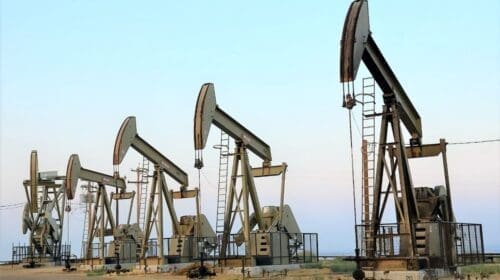With a little more than a month in play since the G& price cap scheme was introduced, Russia’s economy has been reported to be experiencing a stronghold of a negative impact. According to Amos Hochstein, special coordinator to President Biden has currently produced positive results in limiting the revenue made on Russian oil exports. Having been initiated on December 5, 2022, the price cap calls for purchasers outside of the G7 to succumb to a $60 per barrel cap on Russian crude for those using Western services insurance, financing, and maritime routes. Additionally, EU countries see a deadline of February 5, 2023, when they will not be able to enjoy seaborne Russian oil and oil products.
“As oil prices have come down, there’s no doubt that the price cap has, so far, and there’s a long way to go, as we sit today, achieved our interest, which was to have continued supply of oil on the market to support economic growth while limiting the value that oil makes for Putin,” said Hochstein in a CNBC interview with Hadley Gamble.
The price cap’s success is largely due to its focus not only on oil but the additional aspects that partner with oil itself. All have contributed to a Russian revenue reduction waging negative impacts on financing its war against Ukraine.
“These countries barred all of the support services that are used for seaborne exports for any transaction above $60 a barrel, says Ben Cahill of the Center for Strategic and International Studies,” You’re buying oil and want boat insurance? $60 a barrel. You want financing for that oil? $60 a barrel. Commodity brokering services for that oil? Once again, $60 a barrel.”
Cahill indicates success in enacting the bill largely because the G7 provides 90 percent of those maritime services. Additionally, the majority of Europe continues to embargo Russian oil.
Hochstein noted the discount on Russian oil has expanded indicating positive results, but the long haul is yet to be determined saying, ‘we’ll see where it takes us.” While Finland’s Centre for Research on Energy and Clean air estimates a $172 million a day cost to Russia, Hochstein avoided speculation.
Ken Egan, European sovereign analyst for KBRA, however, warns that while Russian revenue saw a slight decline in 2022, it was relative to recent years.
“Russian revenues have somewhat dwindled in 2022, but relative to recent years, revenues are still substantially high,” said Egan.
Some say the sanctions appear to be successful only by coincidence as the demand for oil has been depressed by winter in Europe with little consequence. Temperatures have been mild in comparison to previous years. According to Joan Feldbaum-Vidra, senior managing director at KBRA, China’s demand for oil has yet to fully return as the nation rebounds from its zero-COVID policy.
“A lot depends on the global macro situation, as well as in terms of demand,” says Feldbaum-Vidra.
While Feldbaum-Vidra hypothesizes that the longer the period of sanctions and embargos, the more opportunities will surface to cheat those measures, which would heighten their risk to effectiveness comparison.
Hochstein dismissed naysayers saying he believed that sometimes people fail to support an idea if it has never been attempted prior. He credited the unity of the G7 for producing such a successful measure and is hopeful in regard to its progress.
In an attempt to counteract the price cap measure, Russia’s Vladimir Putin warned he would halt the supply of Russian oil for a five-month term as punishment for any nation accepting the price cap. His measure is set to be expedited by February 1st of this year with a separate ban on refined oil products to follow. As the world sees the end of January near, time will reveal how Russia responds and what other countermeasures the G7 might have up its sleeve.
Nick Vaccaro is a freelance writer and photographer. In addition to providing technical writing services, he is an HSE consultant in the oil and gas industry with twelve years of experience. Vaccaro also contributes to SHALE Oil and Gas Business Magazine, American Oil and Gas Investor, Oil and Gas Investor, Energies Magazine and Louisiana Sportsman Magazine. He has a BA in photojournalism from Loyola University and resides in the New Orleans area. Vaccaro can be reached at 985-966-0957 or nav@vaccarogroupllc.com.
Oil and gas operations are commonly found in remote locations far from company headquarters. Now, it's possible to monitor pump operations, collate and analyze seismic data, and track employees around the world from almost anywhere. Whether employees are in the office or in the field, the internet and related applications enable a greater multidirectional flow of information – and control – than ever before.












